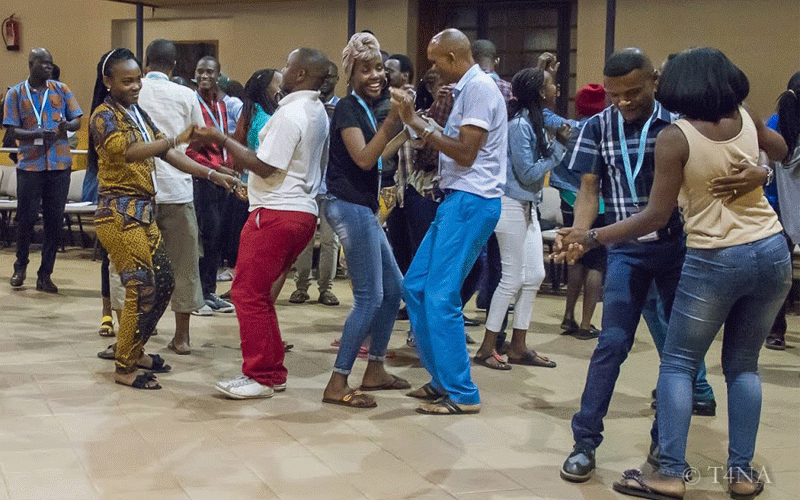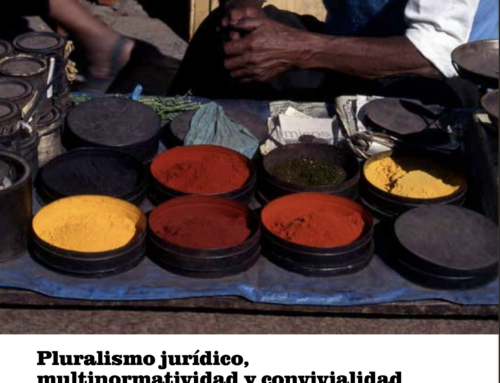The nine-day training that brought together 100 participants from seven African countries under the theme “African Identity and Leadership for Unity,” which concluded Sunday, January 5 had a significant impact on the young African leaders who were part of the program, ACI Africa has gathered.

“There has been an all-round growth and maturity in personal reflections into leadership, appreciating more the values of diversity towards unity, practical skills needed for a good leader among others,” Ugandan-born Tonny Mwebaze who participated in the training dubbed “Together for a New Africa” (T4NA) told ACI Africa Tuesday, January 7.
“The forum specifically highlights service as leadership with all its components (formation) that bring this service to life,” Mwebaze added.
For Mwebaze, the interactive nature of the nine-day forum brought about the realization “in so many ways that we are diverse and different.
“I also learnt that unity doesn’t mean uniformity,” the Ugandan national told ACI Africa in reference to the impact of the T4NA training and added, “the diversity we have can be of great importance towards building unity.”
Jacqueline Njeru, a Kenyan, expressed her appreciation for the just concluded training and recalled the maiden one that took place in January 2019 saying, “We appreciate the well-thought-out and participatory nature of the trainings which are largely youth-led.”
For Ms. Njeru who is the Deputy Director in the Social and Human Sciences Program at the Kenya National Commission for UNESCO (KNATCOM), the fact that the T4NA trainings are youth-led is significant because “UNESCO and Africa Agenda 2063 require us all as stakeholders to ensure focused initiatives are also youth led.”
She appreciated the multi-national nature of participants saying, “Due to the consistency in the participation of the youth from different countries the messages of leadership and identity are well discussed and articulated.”
“It is my hope that through this multi-disciplinary and participatory approach, participants will be able to apply the knowledge and skills in their day to day lives,” Njeru added.
Asked how the theme of T4NA’s training, “African Identity and Leadership for Unity,” was realized, the Kenyan-born representative at KNATCOM said, “The program has promoted the culture of unity as evidenced by the inclusion of youths from different countries and diverse backgrounds thus promoting intercultural dialogue.”
“It has also supported the youth to better understand the importance of reflecting on (their) personal identity and broader identities and how this contributes to our thoughts and actions,” Ms. Njeru added in reference to the just concluded training.
T4NA which is an initiative of former students of Italy-based Sophia University Institute run by the Focolare Movement started in 2014. The seven countries represented at the training included Burundi, Kenya, Rwanda, South Sudan, Tanzania, Uganda and the Democratic Republic of Congo (DRC).
According to the regional coordinator of T4NA initiative, Dr. Melchior Nsavyimana, the program achieved its purpose as outlined in the theme since participants were led to a “better understanding of this culture of unity and African identity for good leadership.”
“We have done a survey to know (how) they feel as participants and all of them highlighted the new way of thinking in unity in diversity,” Burundian-born Kenya-based Dr. Nsavyimana disclosed.
Clarifying the methodology of the survey, Ernst Ulz who has been involved in planning for the T4NA trainings told ACI Africa, “We made a questionnaire and found out that many (young African leaders) feel that they can do something and they will do something to bring the change they want. So together for new Africa is enabling people to bring a change in their lives and in the lives of the society.”
For the Austrian-born Ulz who has ministered in Kenya for the last 10 years as a member of the Focolare movement, T4NA is a laudable “dream of the Africa students of Sophia University.”
In his analysis, the beneficiaries of the trainings “have understood that they should not just build up their own carrier having the opportunity to study in New York, but they have understood that they bring what they have learnt to Africa to build up Africa.”
The beneficiaries of T4NA initiative “have also understood that they can bring a cultural change into Africa not in the sense of not appreciating African culture but going back to the roots of African culture, which they feel is expressed in the Ubuntu philosophy which is very strongly oriented to co-governance, to collaboration, to consensus,” Ulz explained during the January 7 interview with ACI Africa.
The T4NA project, which primarily relies on volunteers, gets its financial support from various stakeholders including Missio Austria, UNESCO Headquarters in Paris, KNATCOM, Austria’s Caritas Steiermark, participants’ contributions, and private donations, Ulz who has coordinated the fundraising initiatives told ACI Africa.
Father Don Bosco Onyalla
Editor-in-Chief, ACI Africa
donyalla@aciafrica.org






Leave A Comment